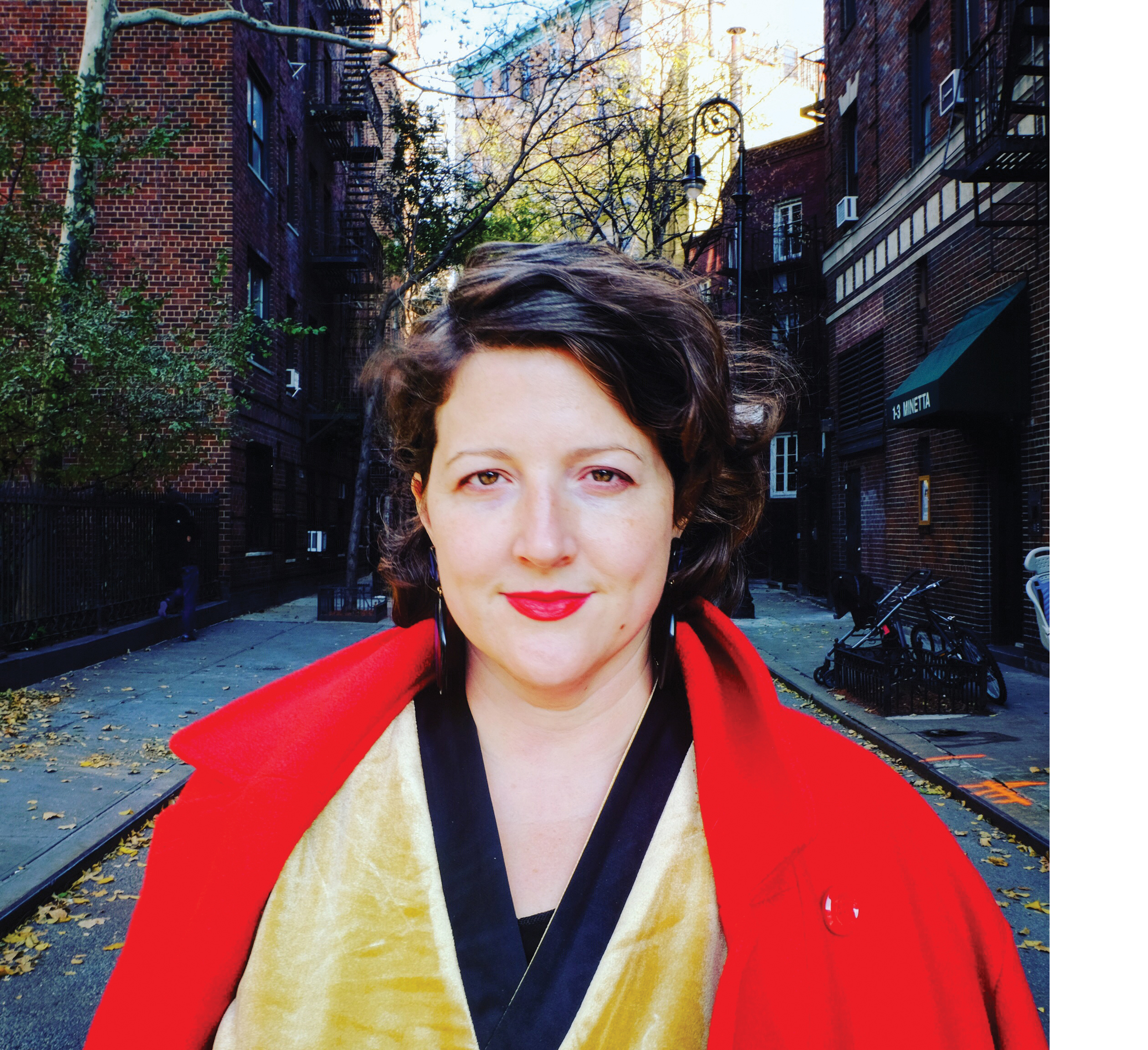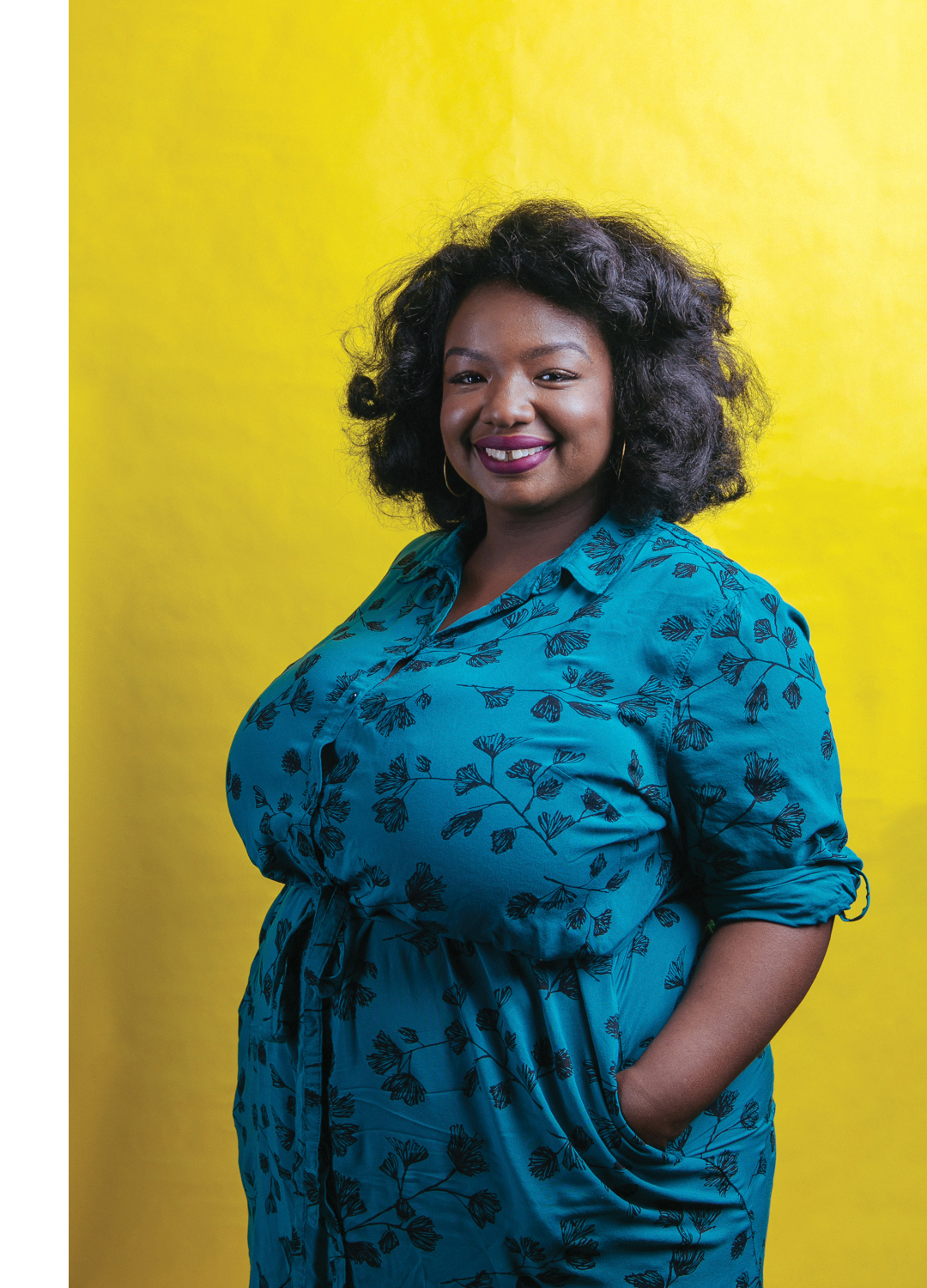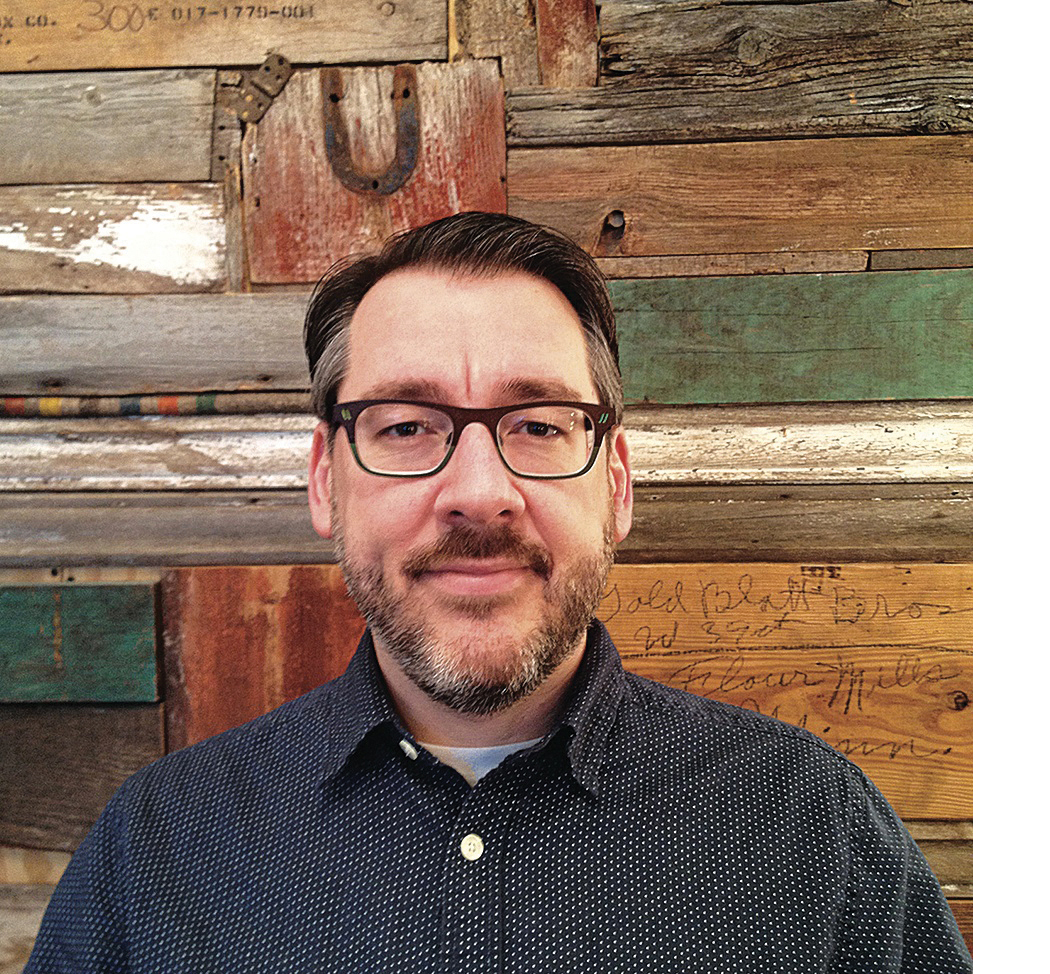This winter, as I resurfaced after a long sabbatical during which I was able to disconnect and work, head down and solitary, on new poems and essays, I found myself thinking about publicity. Maybe it was that, after a flurry of two books and two babies, and after extended time to focus on my writing, I finally had a chance to think holistically about my career. I’d never really thought about publicity strategically before. I’ve had good luck with two books of poems, including Work & Days (Red Hen Press), which magically appeared on the New York Times Best of 2016 list. But even so, my own attempts at publicizing my work have felt a bit haphazard at times—a last-minute scramble of hurried lists and harried galley mailings, carrying packages to the post office—often, it seems, with a baby strapped to my chest. If I’ve occasionally hit the mark, my process of getting work out in the world has mostly been a mixture of luck and happenstance. I wanted to learn to work smarter.
If you want to learn about publicity, talk to a publicist. I thought longingly of a dear novelist friend whose in-house publicist had crafted her a killer press kit, helped her line up freelance articles to dovetail with publication, and arranged a great deal of her national book tour. But not many authors are fortunate enough to work with an in-house publicist. I wondered what independent publicists might have to offer writers who don’t have access to that kind of institutional support and what advice they might give to writers who may not have the resources to hire them. As a book reviewer I deal with publicists all the time. I decided to contact a few indie publicists with a gift for putting writers on the map. I asked about what writers should be doing for themselves, what indie publicists do on behalf of their clients, and how they’d advise me to think about shaping the way I approach getting my own work into the world.

My first call is to Lauren Cerand, a highly sought-after independent publicity guru who exudes an easy bookish glamour. As we chat, Cerand tells me about her early training moving stories through online and traditional media. She had always wanted to be a change agent: She began her work in publicity shaping stories about the labor movement for the AFL-CIO, then the garment workers union. “I began in this really mission-driven sector,” she says. “I believed that the stories I was broadcasting could help change lives.” A few years later, she had a job publicizing programs at the 92nd Street Y in New York City when her then boyfriend published his first book. “The in-house team wasn’t doing that much with it, and I felt like it was going to fall flat, so I decided to leap in,” she says. She pitched the book to Jon Stewart cold, sending over information about the book by fax. To her great delight, the book ended up on The Daily Show before spending four weeks on the New York Times best-seller list. Cerand felt she was onto something, and apparently she was. Since striking out on her own in 2004, her clients have included poets Chris Abani and Eileen Myles and fiction writers Tayari Jones and Daniel Handler.
When I ask Cerand what she does for her clients, she demurs. “I actually want to be invisible,” she says. “I’d love for nobody to know that my clients have a publicist.” Instead, Cerand says she works with writers to refine their own goals for success. “What success really looks like to each of us is actually radically different from person to person. You have a big goal for your life as a writer. My role as a publicist is to help align you with that vision.”
I had naively imagined that publicity was something a publicist just did, a process that involved ticking off the boxes in a list of already established steps for success. Cerand immediately encourages me to think otherwise. “I always ask writers, ‘What do you want that you don’t have?’ And I ask my writers to name not only, say, prizes, but also the principles behind the recognition they want,” she says. “There’s an idea that everyone wants to be successful in the same way, but that’s not true. You might be a food writer who wants to change the way we talk about how we eat, or a poet whose dream is to have your poems on the subway.” Cerand leans into each specific vision, using it to drive a campaign. “What I aim for is a sense of ubiquity, an electric jolt of familiarity and intrigue that appears over and over through media, through experiences, through the way that the authors themselves express their art in the world.” Put simply, Cerand is after more than just book reviews: She’s hoping to create the conditions under which the artist’s practice becomes visible to a wider audience.
I’d also imagined, incorrectly, as it turns out, that a publicist is someone you might easily hire, but Cerand’s services don’t come easy—or cheap. Not only do her campaigns cost $7,000 a month for a minimum of a three months, but she also often begins plotting a course or taking on a client up to two years in advance of a book’s publication. In addition, Cerand takes on just four to six clients a year, working only with books she thinks she can do great justice to. “Everything I do has to be perfect,” she says. “I want to pick books that feel ready to be part of a wider conversation—whether that’s political, or intimate, or just revelatory—about the texture of the world.” She also wants to believe that an author is ready to use her services fully. “Sometimes people come to me when I think that they just need to make their own mailing lists,” she says. “I want to work with people who I know I can create new opportunities for—people who have taken their own journey as far as they can.”
I speak at length with Cerand about social media, about how burned out it can make me feel these days. Instead of a means for connecting, it has become another distracting workspace where everyone clamors to be seen. She encourages me to step back, and spend a day at an art museum or reading a book I love. “You want to think about how to break out of established channels. Social media can be a lonely place,” she says. “You might be wiser building really key human relationships, with editors and other writers and readers, things that are more solid and less ephemeral.”

After digesting my conversation with Cerand, I connect with Kima Jones, who, like Cerand, arrived at book publicity after traveling a roundabout path, starting her career as director of marketing for a drug rehab center in Beverly Hills. Although she’d been writing poems since she was a girl, she was hesistant to join the literary world. Having grown up as the oldest of eight children, she felt a need to be financially self-sufficient. “I grew up poor, and I didn’t want to be poor,” she says. “It did not seem reasonable to me to have a life in publishing. I didn’t feel that I could sustain myself as a poet.” Jones is an avid reader, however, and it irked her that significant books, especially those by black authors, were being overlooked. “They’d come into the store and then just drop out of view after maybe a week. There was no conversation,” she says. “I wanted black work to be taken seriously.” She started to realize that she could create the conditions for those conversations to be both ongoing and highly visible. A nascent dream took shape; Jones’s background in marketing and her love of literature came together when a friend, author Cole Lavalais, asked her to get the word out about her debut, Summer of the Cicadas, which was forthcoming from Willow Books. “The idea of doing publicity for books just clicked,” Jones says. Within months she’d begun to build a business, working eighteen-hour days out of her studio in the Silver Lake neighborhood of Los Angeles. Three years later, Jones and two associates work together as Jack Jones Literary Arts, representing four to six books every three months, no more than twenty-four books a year.
The mission of Jack Jones Literary Arts is to enlarge and transform the way the publishing industry represents women of color. Although Jones did work with Tyehimba Jess on his Pulitzer Prize–winning collection, Olio (Wave Books, 2016), 97 percent of her clients are women—a balance she prefers. “I’m aware that my practice looks not a little different but a lot different than the rest of the publishing industry,” she says. “Publishing is overwhelmingly white, and it can be really uncomfortable for emerging writers of color. Working with me takes that off the table. They know that I’m an ally.” Part of her role, Jones says, is a willingness to be a strong interlocutor for each of her clients. “You’re not going to be given a cover that makes you feel tokenized. You’re not going to do events that make you feel played,” she says. “We are going to work together toward new media and new models of representation.” Because Jones herself is relatively new to the business, she often takes on young or first-time authors. “The idea is that our careers are growing together,” she says. “When I worked on Rion Amilcar Scott’s Insurrections, we were simultaneously talking about book two because book one needed to set up those platforms.”
Jack Jones Literary Arts offers a variety of services, from a forty-five-minute consultation that costs $500 to packages for supplemental and primary publicity that start at $10,000. In addition, Jones works with literary nonprofits that serve marginalized communities, and she hosts an annual writers retreat for women of color.
I talk to Jones about gravitas, and public-intellectual status, and about what an author can do to achieve it. My conversation with Jones challenges me to think more deeply and more precisely about my own work and what I am trying to say with it. “In Create Dangerously, Edwidge Danticat talks about how artists create their bodies of work out of the mythologies and hauntings that follow them from their young lives,” she says. “When I’m thinking about a client’s campaign, I’m asking her, ‘What are your obsessions?’ Sometimes she’s not even aware.” Jones adds that this awareness needs to translate into a sense that the arc of a book or project will leap into the national conversation. She reads with questions ready: “Is there something provocative here? If I put my client in conversation with, say, Robin Coste Lewis, is my client going to be able to hold her own?” Jones tells me that before making an offering to the world, it is the job of writers to clarify and hone their own contribution to the wider conversation. She reminds me that the first step in breaking out is actually taking the time to turn inward and look within.

My final call is to Michael Taeckens, the kind, soft-spoken cofounder of the highly regarded Broadside: Expert Literary PR. Taeckens, who studied poetry with Jorie Graham and Robert Hass at the Iowa Writers’ Workshop and spent twelve years doing publicity for Algonquin Books, then two years for Graywolf Press, started Broadside with Whitney Peeling and Kimberly Burns three years ago. He represents authors on an independent basis and also helps add steam to in-house campaigns. Taeckens, who is representing books by Ada Limón and Natasha Trethewey this spring and who recently represented Kevin Young for his work on Bunk: The Rise of Hoaxes, Humbug, Plagiarists, Phonies, Post-Facts, and Fake News (Graywolf Press, 2017), sees his role as creating the conversation. Like Cerand and Jones, he is judicious about what he takes on. “I want to read the book and feel like I know how to sell it,” he says. “I need to feel that I am able to tell the story of the book with original and authentic passion.” He adds: “Creating buzz happens through hard work, but I’m not performing magic tricks. I’m sharing my enthusiasm and I’m building relationships between authors and gatekeepers and also, eventually, readers.” Taeckens’s work is powered by his own genuine excitement. “There’s something that happens when our conversations and passions sort of bubble up together,” he says. “Things do reach a place where they can cascade.”
Taeckens, who charges $4,000 to $5,000 a month, depending on the genre and scope of the project, for a six-month campaign—and who takes on only six to eight projects per year—wants to remind authors that it’s important to be extremely cautious when making the deep investment in publicists. How proactive are they? How much do they understand your vision? What track record do they have landing print, TV, or radio spots? Do they really know the players? Can they help take your book beyond reviews and into lifestyle pages, or find the stories that surround your book? Do they know how to do the investigative work to find the reviewers who will respond to your book? Taeckens says that a good publicist doesn’t promise the moon. “I’m realistic with authors. Sometimes people just want to be on Fresh Air and we have to think, ‘Well, what really is the story for them here?’” He says that he and his clients talk for a long time so that he can approach the book and the author from many angles. “My goal is that your name becomes an integral part of literary culture,” he says. “I go down a lot of rabbit holes. I have to really think about what will resonate.”

Taeckens slowly draws me out about my third book of poems, which is set in my hometown, a place I’ve left and returned to, a place now undergoing radical transformation. He also gets me to talk about how I’m thinking of shaping a book of essays that I’ve been working on for some time. We begin brainstorming about my dreams, where I’d like to see my work reviewed or placed, what cards I should turn over next, where the next part of my path should lead. Who inside the book world did I dream would read my book? Who outside the book world might want to read it too? While talking with Taeckens, I start jotting down new ideas of publications I want to read more closely, writing phrases like “Book launch at local history museum” and “Make a better national list of favorite bookstores” and “Do more events at wineries” and “Read with geologist or scientist.” I tell him that I can feel the buzz already, and he laughs. “That’s how it starts,” he says. “It becomes a kind of consuming passion.”
As I make new lists and maps, one of Cerand’s questions sticks with me: “What do you want that you don’t have?” A week or so later I write a heartfelt note to Cerand in which I tell her that I want to feel more visible. I also write about wanting to be an ambassador for a kind of poetry that would make us feel more connected and more human, that provides something I think we’re all deeply hungry for now. I write that I want to figure out how to feel a heft in my own work that will get me out of the cycle of posting and retweeting and gabbing online. “I want poetry that brings us back to the body, back to the breath, back to each other,” I write. Cerand calls me back, ready to talk.
I suppose when I began this article, I’d imagined that I might be told to pitch certain great magazines, or to refine my website, to hone my elevator pitch. I was told these things, of course, but when Cerand and I follow up, she has a much simpler, much more down-to-earth suggestion. “Why don’t you find a church or public space in your community and try to host a really simple family-friendly reading? Once a month, a kind of deeply community-inspired poetry outreach?” she asks. “You could include music and food. People could relax.” The idea at first seems deceptively simple. I’ve run reading series before, but in Cerand’s hands, this advice—to slow down and gather real community in real life—seems different. I love the idea of curating a family-friendly space to unplug and just be with the joy of words. Whether or not this will lead to great fame, or be a huge press sensation, it feels right.
“When you want to change the way you’re seen, you also want to work differently, and you want to work out of your principles,” Cerand says. The idea is at once challenging and profound. In this difficult time, when so much news is hurtling toward us online, how can I slow down, ground myself, and connect more deeply to the community around me? Cerand brings me back to thinking about publicity in a way that can nourish me. “You don’t want just to think about the book launch,” she says. “You want to think about the life’s work. What is irreplaceable about this work? What is irreplaceable in a life?”
Years ago, as a somewhat shy college graduate trying to get my first nibbles in publishing in New York City, I was exhausted by the blithe charge to go out and network. At a certain point, I stopped and read a goofy but sweet book—I still remember it—called Never Eat Alone by Keith Ferrazzi. He proposed that networking was not meant to be scary but is really about actively and lovingly cultivating friendships that can sustain you, and in which you also can offer others something that is most genuine about yourself. Remembering that the best “networks” are really made out of only acts of deep humanity was a relief to me.
That feeling of humanizing the process comes back to me as I finish my conversations with Lauren Cerand, Kima Jones, and Michael Taeckens. Sure, there is work, and press, and mailing, and kits, and social media, but what has amazed me while talking to these publicists is that each has reminded me how much more holistic those processes could be. These publicists are, like me, avid readers, passionate about creating conversations, hungry to pass on the gift of great writing, working in the service of connecting people and ideas. Like me, they are idealists—wanting to further the reach of books and ideas they love and perhaps even to change the world with them. As Cerand puts it: “Think about publicity as something that connects you. Try to be as tender about publicity as you have been about making the work—put the work into the world as lovingly as you made it.”
Ten Quick Tips from the Publicists
1. Your writing comes first. “Don’t do things that make you anxious about your health or your time,” says Taeckens. “You have to keep making work, and you have to keep making the work that’s most important to your vision.”
2. Focus on real relationships. “Your virtual network might be fun, but really knowing editors and other writers, and caring about them, is so much more valuable as a time investment,” says Cerand.
3. Always be brainstorming. “Go ahead and dream big, and early,” says Taeckens. “You might want to keep a list of any publications you might write for, or do freelance pieces that would go along with your book. That way you’re generating ideas that you can pitch even a year out. Keep in mind that many media venues plan coverage as much as four to six months out.”
4. Remove obstacles. “Your website should be clear. You should have a really easy link to getting to your book,” says Cerand. “You need to remove any obstacles to actually finding your work.”
5. Be a good literary citizen. “Think on the local, regional, and national level,” says Taeckens. This might mean supporting the writers in your city, planning community events, developing a fundraiser for your local library, or serving on a board. “Make a point of showing up for others,” Taeckens says. “You must build your ecosphere.”
6. Refine your elevator pitch. “Having an intriguing one to two sentences about your book is so simple, but so many people don’t quite have it down,” Jones says.
7. Think beyond the press release. “Robust press materials can give the media ideas for ways of approaching and discussing your book,” Taeckens says. “In addition to press releases, consider adding a pitch letter (a more personalized pitch for the book), talking points (a list of topics covered in your book that you can discuss in interviews), Q&As, an extended bio, and a praise sheet.”
8. Envision entering the conversation. “Good solid advice is always to look for tie-in news and trends that will prop up the book project,” says Jones.
9. Mix it up. “When you feel that you want to be seen differently, work differently,” says Cerand. Maybe you need a Facebook sabbatical. If you feel like you’re tweeting too much about yourself, spend a couple weeks promoting the work of others. Maybe you need to organize more events in your city or consider working in a different genre.
10. Pay it forward. “Always support the work of your contemporaries, your peers, and the next generation,” says Jones. “Today’s debut writers will be writing tomorrow’s blurbs.”
Tess Taylor is the author of The Forage House (2013) and Work & Days (2016), both published by Red Hen Press. She is an on-air reviewer for NPR’s All Things Considered, and this spring she is the Anne Spencer Poet in Residence at Randolph College in Lynchburg, Virginia.
(Photos: Cerand: Jason Rice; Jones: Kayla Reefer; Taeckens: Linwood Hart.) [Corrections: An earlier version of this article incorrectly stated the number of projects that Michael Taeckens takes on each month; the number has been updated to reflect how many projects he takes on each year. Additionally, a quote by Kima Jones has been corrected to accurately reflect her perspective on the need to be financially self-sufficient.]











